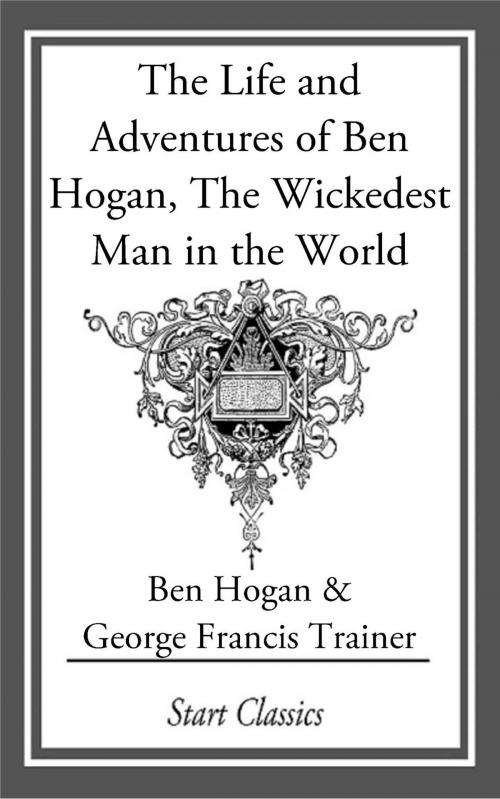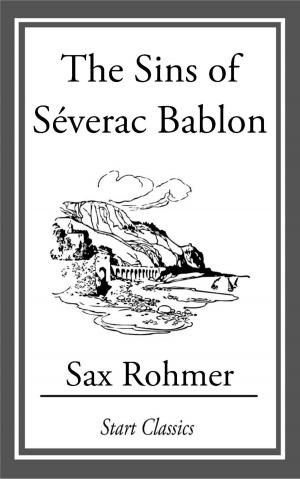| Author: | Benedict Hogan | ISBN: | 9781627938075 |
| Publisher: | Start Classics | Publication: | November 27, 2013 |
| Imprint: | Start Classics | Language: | English |
| Author: | Benedict Hogan |
| ISBN: | 9781627938075 |
| Publisher: | Start Classics |
| Publication: | November 27, 2013 |
| Imprint: | Start Classics |
| Language: | English |
Benedict Hagan, whose name has become familiar in the altered form of Hogan, is a native of Würtemberg, Germany. With his parents, he immigrated to this country at the age of eleven years. His father was a cabinet-maker by trade, who had saved up something like a thousand dollars, with which he set forth to better his condition in the New World. Along with his family, he arrived in New York in the summer of 1852. His reception was not of the most encouraging nature, and an incident which occurred almost immediately after the landing of the family will serve to show the character of Hogan at that time. As was customary with all emigrants who had any money to carry, the elder Hogan had secured his fortune, amounting to eight hundred dollars in gold, in a belt fastened about his shoulders. When he walked out of Castle Garden he was forthwith set upon by a Hebrew of the South street order, whose nose resembled his nature, because it was sharp. This enterprising Jew, who spoke German fluently, induced the emigrant to go into a small shop where everything was given away—for four times its value. The unsuspecting Hogan made a small purchase, and when he came to pay for it, disclosed the bag containing his gold. The sight was enough to rouse the Hebrew. Precisely how it happened he did not know; but in an amazingly short time Hogan senior found himself relieved of his eight hundred dollars. Had it not been for the presence of young Ben, it may be safely assumed that the emigrant would never have gone forth from the Jew's place alive. The boy, however, presented an obstacle to the commission of murder, which was undoubtedly intended by the robbers. They determined, therefore, to get rid of their victims by strategy instead of force. One of their "cappers" offered to lead the way to the police station where they might get assistance in recovering the money. He did lead the way, but it is unnecessary to add that there were not a great many police stations in the neighborhood to which he conducted them. The Hebrew perhaps thought that he had made one of the fattest "hauls" in his life; but it turned out to be a very dear job.
Benedict Hagan, whose name has become familiar in the altered form of Hogan, is a native of Würtemberg, Germany. With his parents, he immigrated to this country at the age of eleven years. His father was a cabinet-maker by trade, who had saved up something like a thousand dollars, with which he set forth to better his condition in the New World. Along with his family, he arrived in New York in the summer of 1852. His reception was not of the most encouraging nature, and an incident which occurred almost immediately after the landing of the family will serve to show the character of Hogan at that time. As was customary with all emigrants who had any money to carry, the elder Hogan had secured his fortune, amounting to eight hundred dollars in gold, in a belt fastened about his shoulders. When he walked out of Castle Garden he was forthwith set upon by a Hebrew of the South street order, whose nose resembled his nature, because it was sharp. This enterprising Jew, who spoke German fluently, induced the emigrant to go into a small shop where everything was given away—for four times its value. The unsuspecting Hogan made a small purchase, and when he came to pay for it, disclosed the bag containing his gold. The sight was enough to rouse the Hebrew. Precisely how it happened he did not know; but in an amazingly short time Hogan senior found himself relieved of his eight hundred dollars. Had it not been for the presence of young Ben, it may be safely assumed that the emigrant would never have gone forth from the Jew's place alive. The boy, however, presented an obstacle to the commission of murder, which was undoubtedly intended by the robbers. They determined, therefore, to get rid of their victims by strategy instead of force. One of their "cappers" offered to lead the way to the police station where they might get assistance in recovering the money. He did lead the way, but it is unnecessary to add that there were not a great many police stations in the neighborhood to which he conducted them. The Hebrew perhaps thought that he had made one of the fattest "hauls" in his life; but it turned out to be a very dear job.















